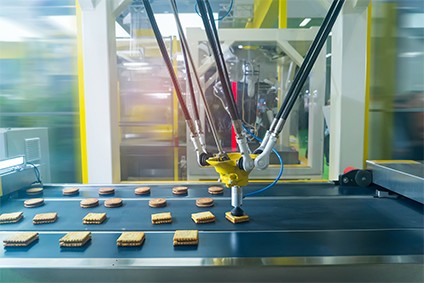In today's diligent customer landscape, the need for morally sourced as well as lasting items has surged. Private label food manufacturers have become innovators in this domain name, often working together with agreement food makers to spearhead sustainability and responsible sourcing efforts. With a tenacious commitment to ecological values, personal label brand names have actually made it their goal to deliver sustainable, high-quality options to consumers.
Private Label Food Manufacturers
In the last few years, private label food manufacturers, additionally known as own brands or shop brand names, have observed a remarkable rise in appeal. These makers generate items offered under the logo of a retail store, grocer, or private entity. What collections private-label products apart is their capability to provide affordable prices without jeopardizing on top quality.
Contract Food Manufacturers
Numerous private-label food suppliers sign up with pressures with contract producers to develop their product lines. Contract food suppliers are specialists in creating food products for personal labels. This critical collaboration allows exclusive label business to tap into the know-how, sources, and also devoted food production centers of their partners.
Sustainability at the Core
Private label food manufacturers use numerous methods to improve sustainability within their supply networks:
Honest Sourcing:
Private label business are significantly dedicated to sourcing active ingredients according to moral and also fair profession criteria. This entails ensuring that producers as well as employees of basic materials, such as coffee beans, flavors, or cocoa, obtain reasonable payment for their initiatives.
Neighborhood Sourcing:
Focusing on regional sourcing of ingredients is another hallmark of private-label food manufacturers. This not just decreases the carbon footprint related to transportation but also sustains neighborhood farmers and communities.
Organic Ingredients:
With the organic food market increasing, exclusive labels are reacting by integrating natural components right into their product lines. Organic farming techniques prioritize soil wellness while shunning artificial chemicals and also fertilizers.
Lasting Fish and shellfish:
Private Label Food Manufacturers are attentive in making certain that the fish and shellfish they make use of is sustainably collected, adhering to guidelines established by organizations like the Marine Stewardship Council, which promotes liable fishing.
Minimized Food Waste:
Exclusive label companies are actively working with reducing food waste by carrying out reliable manufacturing procedures and also establishing products with longer life span. Some brand names are also partnering with food rescue companies to donate excess food to those in need.
Eco-Friendly Packaging and Campaigns
Sustainability efforts by private-label food manufacturers expand beyond sourcing ingredients to include packaging and eco-friendly efforts:
Lasting Product packaging:
Private label brands private label foods have welcomed environmentally friendly product packaging alternatives, consisting of recyclable, eco-friendly, or compostable materials. Upgrading packaging to minimize excess product as well as lower environmental effect is a leading concern.
Waste Decrease:
To decrease waste, private-label food manufacturers maximize product dimensions, minimize excess packaging, and check out cutting-edge product packaging solutions. Some brands also urge consumers to participate in recycling programs.
Energy Efficiency:
Many exclusive label suppliers are buying more energy-efficient manufacturing plants, decreasing water usage, and also embracing renewable energy resources to further minimize their environmental footprint.
Carbon Neutral Initiatives:
Some exclusive brand name food makers are taking ambitious steps to accomplish carbon nonpartisanship by offsetting their greenhouse gas emissions with reforestation jobs as well as renewable energy credit scores.
Challenges and the Roadway Ahead
Despite the substantial strides made in sustainability and accountable sourcing, private-label food suppliers face challenges. Stabilizing sustainability with cost-effectiveness can be a delicate act, often needing compromises on lasting ingredients or the exploration of environment-friendly alternatives.
Nevertheless, the future of private-label food manufacturing holds excellent guarantee. As consumer recognition and demand for lasting items remain to rise, private-label brand names as well as their contract food manufacturing companions are likely to heighten their initiatives. Collaboration with providers as well as financial investment in sustainable technological advancements and transparency will certainly be crucial in shaping a sustainable future for the industry.
Frequently Asked Questions
Q1: What are private label food manufacturers?
Private label food manufacturers produce items marketed under the logo design of a retail store, grocer, or private entity. They use competitively priced items without jeopardizing on high quality.
Q2: Just how do private label food manufacturers advertise sustainability?
Private label food manufacturers advertise sustainability through moral sourcing, regional active ingredient purchase, using natural active ingredients, sustainable fish and shellfish practices, and also initiatives to lower food waste.
Q3: What environmentally friendly product packaging alternatives do exclusive label brand names utilize?
Private label brands adopt eco-friendly packaging choices such as recyclable, biodegradable, or compostable materials. They additionally upgrade product packaging to decrease excess material and minimize ecological impact.

Balancing sustainability with cost-effectiveness is a major obstacle for private label food manufacturers. This may need concessions on sustainable active ingredients or the exploration of green choices.
Conclusion
Private label food manufacturers go to the leading edge of the sustainability as well as liable sourcing activity within the food sector. Their commitment to honest sourcing, regional purchase, organic ingredients, and sustainable practices, along with their commitment to eco-friendly packaging as well as waste reduction initiatives, demonstrate their resolution to meet the demands these days's eco-conscious customers.
